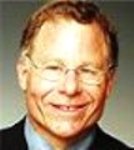|
|
Bond Market Hunter
This September, 2100Xenon Group founder and chief investment officer Jay
Feuerstein celebrated his 30th year in futures. He got into the business right
after receiving an MBA from the University of Chicago, where he was inspired by
extraordinary professors in economics and finance, among them an impressive
number of Nobel Prize winners. He retains his youthful enthusiasm for
understanding markets and finding opportunities.
At 2100Xenon he and a group of U. of Chicago graduates look for inefficiencies
to exploit in bond markets. These markets require specialized skills to trade
successfully and there aren't many commodity trading advisors that concentrate
on fixed income. This issue's Top Ten list of financials-only managers includes
some, among them 2100Xenon.
The 2100Xenon Long/Short Global Fixed Income program has low volatility-under 4%
over a track record of six years. In the past 12 months the program made close
to 9%. The firm also has a diversified program and assets around $160 million,
all in managed accounts. 2100Xenon is an affiliate of Old Mutual Holdings, a
large asset manager.
Before he launched Xenon, Mr. Feuerstein was a managing director and principal
at Bear Stearns & Co. Here he discusses fixed income investment strategies-see
the next section for his analysis of Federal Reserve policy.

Jay Feuerstein
"Opportunities in fixed income futures are better than ever and I
believe will be there until short-term rates move appreciably away from zero and
market conditions normalize."
Opalesque Futures Intelligence: What did you learn at the U of Chicago
Graduate School of Business?
Jay Feuerstein: The language at the university was mathematics. Walk into
a classroom and there'd be four blackboards filled with equations. You learnt
how to compute just about anything. This helped me when I got into futures
because I could write code for an Apple, the only PC available at the time. That
was a great edge. Other people were using calculators! One particular course
that influenced me was decision theory. Being a trader is all about making
decisions. A main theme in that class was the merits of being systematic.
Systems tend to out-perform discretion. Another influence was Merton Miller, who
was very interested in futures. I studied with him.
OFI: Why did you go into bond futures?
JF: The futures field was wide open. None of my peers at school wanted to
interview for futures jobs. They wanted investment baking or consulting. Fixed
income futures were new. Most traders had no experience in a bond contract, so
there were incredible arbitrages available. My philosophy is to try to find
value where other people don't see it. That's what fixed income futures
provided.
OFI: Are there still arbitrage opportunities in bond markets?
JF: Fixed income markets have changed most recently because of the global
financial crisis. The role of government and central bank policy has grown,
causing volatility but also creating inefficiencies. In the US, the Federal
Reserve's zero percent interest rate policy and quantitative easing leaves
inefficiencies that lend themselves to what we do. Opportunities in fixed income
futures are better than ever and I believe will be there until short-term rates
move appreciably away from zero and market conditions normalize. But this market
is very dangerous for those who don't know what they're doing. Fixed income
futures have idiosyncrasies and require expertise.
OFI: What if there's a bond bubble as some people predict?
JF: Well, whatever the overall situation, our portfolio is long
volatility. In volatile times and flights to quality as in 2008, we do extremely
well. Our current models are built for that. The strategy is not correlated to
long-only bonds and also uncorrelated to stocks and other futures managers. We
aim to make money whether rates go up, down or sideways.
OFI: You write articles on economic policy. Do these studies influence
your trading?
JF: I think of the broader picture -like Ben Bernanke's expected policy
moves -to understand what consequences it may have in bond markets. Then we put
the ideas into math and test them. My approach has some resemblance to
systematic global macro.
OFI: What happened after you started Xenon in 2001?
JF: What I did then was different from what I do today. I had a simple
model for trading US bond markets. Initially it performed well, but fixed income
markets changed after 9/11, issues like flight to quality became more important
and my model no longer worked. I re-tooled and re-launched in 2004, with
diversified multiple models, trading in multiple markets and better developed
risk management. Markets are dynamic. You have to adjust the models and build
new ones.
OFI: How are your models diversified?
JF: We have six models. Some are based on fundamental economic factors,
others are technical. There are multiple time frames, from our two-hour
convexity model for intra-day fixed income trading to a nine-month yield curve
model. We have a couple of trend following models, but about half the risk we
take does not involve trend following. All these models are part of our
Long/Short Global Fixed Income program, which trades in 19 markets over five
continents. Our broader managed futures program uses the same models and, though
more diversified, still has half of its risk in fixed income.
OFI: Is fixed income expertise useful in other markets?
JF: Global liquidity drives the behavior of all markets, meaning all
markets react if there is a liquidity crisis like in 2008 or when the system
becomes awash in liquidity like it did before the crisis. Interest rate
movements are the first order of behavior, the first reaction to the situation.
Their behavior influences other markets. So models that work in fixed income
tend to work in other markets as well.
|